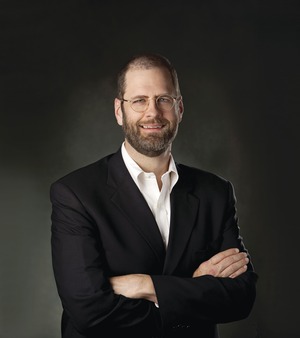That attitude and CPA's alternating attacks on either side of the aisle make for confusing dialogue around the super PAC. "I've been called an anarchist and both pro-Obama and anti-Obama," says Linbeck, who says he never meant to be the face of CPA.
Richard Skinner, a professor of political science at the New College of Florida, says the CPA super PAC isn't the first anti-incumbent political movement. The last one of note was during the 1990s term-limits movement. But CPA "is the only major super PAC (that I know of) that crosses party lines to such a great extent," he wrote in an e-mail to ENR.
According to Skinner, most super PACs are majority-funded by a single wealthy donor. CPA fits that mold. In 2012, the group raised $1.5 million, $1.1 million of which came from Linbeck.
Engineers and contractors in Houston and Dallas know Linbeck as Executive Chairman of Linbeck Group LLC, the general contractor behind many iconic projects, including the Co-Cathedral of the Sacred Heart in Houston and the Fort Worth Museum of Science and History. In 2011, Linbeck Group reported about $323 million in contracting revenue, mostly in CM-at-risk services. Founded in 1938 by Linbeck's grandfather, the group is part of the family's Aquinas Companies LLC.
Linbeck doesn't see himself as a political expert. He holds a bachelor's degree in engineering from The University of Notre Dame, a master's degree in structural engineering from the University of Texas at Austin, and an MBA from Stanford. In addition, he teaches classes in business management at Rice and Stanford.
But he is gaining political experience. Before his involvement in campaign finance, Linbeck was active in the charter-school movement. He's the leader of the Health Care Compact Alliance, a Texas coalition working to solve health-care problems at the local level. He has recently become a fan of Daniel Kahneman's book "Thinking Fast and Slow," which examines the many facets of decision-making. When discussing federal transportation funding, he tosses around terms such as "common pool resources."
Political-minded construction executives in Linbeck's position often choose one of two paths. The first, lobbying, is favored by San Antonio-based Zachry Construction. The firm spent more than $150,000 on lobbying services in 2002, according to OpenSecrets.org, and much less in recent years. The second path is to form a company PAC, as did Dallas-based contracting firm Austin Industries. Austin's PAC spent $52,000 in the 2010 election cycle. Most contractor PACs donate equally to Democrats and Republicans in the Senate and House, but others favor Republican candidates.
These conventional routes didn't appeal to Linbeck. "I really felt unsatisfied with the way the system reaches out and looks for engagement from people like me. I got the feeling it was like being invited to go to a poker game, you sit down at the table, and you find out pretty quickly that you're the mark. … If you want to be treated like a big shot, you give a lot of money and then mind your own business, because they say they're going to take care of it. But they're not taking care of it. They're making a mess."
Thanks to coverage of the super PAC in The Washington Post, The New York Times and The Wall Street Journal, CPA's links to Linbeck and his business are clear—for better or for worse. He does not know what impact the publicity could have on his firms.
"It would be very difficult to say that making an investment like this is a prudent business choice. I don't think you can view it as a return on investment, which is the way lobbying works," Linbeck says.
He doesn't expect CPA to spend on any more races in 2012 but says the super PAC will continue connecting with interested donors and making plans for the 2014 primary season.
In the end, Linbeck says, the goal was not to interfere with elections in far-flung districts but to encourage voters to feel more confident about challenging incumbents and starting their own super PACs. And that change can only happen one representative at a time.
He adds, "There's this view that the only thing that really matters is the presidency, and someone's going to win that, and when they get back and someone's inaugurated, Congress is still going to be broken."


